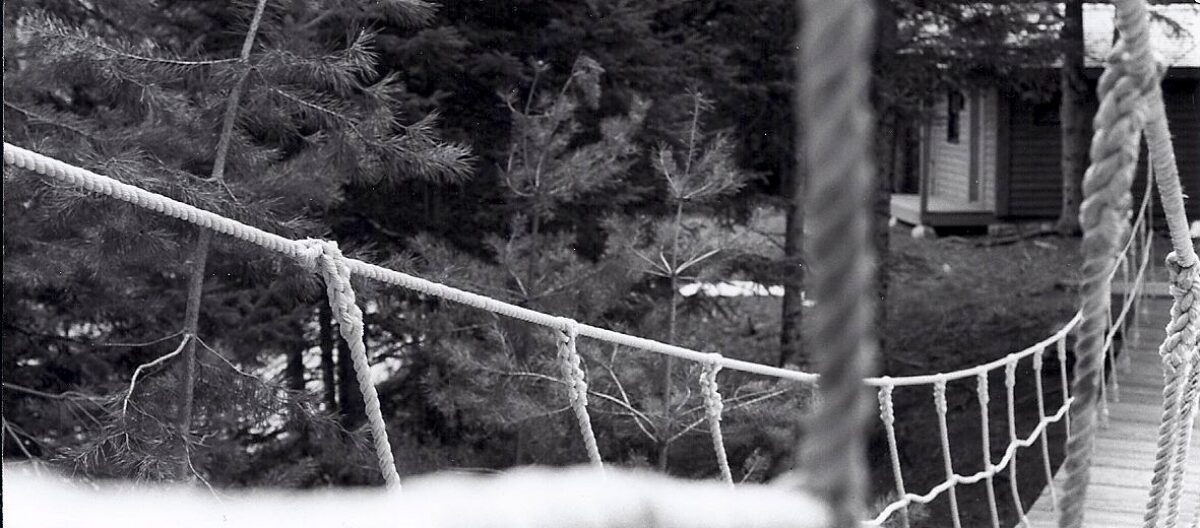SLED DOGS
The Isolation Blues;
reflections during covid-19

We are now over 40 days into shut-down and quarantine-mode so don’t be surprised if you and people you know are starting to get a little squirrelly. I came across this article in the Boston Globe last week and thought it might be relevant to our current situation as we’re trying to find ways to ride out the isolation and navigate the ongoing disruption of our normal lifestyle. Nicolas Dubreuil is an arctic explorer who has endured long periods of time in remote solitude. Besides having a distinct flair for polar fashion (I love those pants!) he has practical advice for those of us encountering extended isolation.
The first winter I stayed in the cabin I spent it with my Samoyed sled dog named Sushi. She was only a year old but had a passion for snow, toasted bagels and pulling. I friend of mine gave me a dog harness and we began skijoring in the backwoods of Monticello and Harvey Siding. More often than not it amounted to me taking her for a walk on a leash in the snow (I just happened to be on skis). Every so often a rabbit or a squirrel would cross our path and I’d get a short spurt of action. But whenever a white-tailed deer appeared that’s when I got the ride of the day! The only people I saw that winter were my co-workers at the potato house and my dog Sushi. We spent time on the trail and time at the cabin. It was my first experience of extended solitude and I bonded with my furry companion. I don’t think I would have made it without her. She was my connection to nature, the wild and the rest of humanity even though neighbors were distanced.
Hang in there fellow travelers!
. . . .
A polar explorer’s four strategies for thriving in isolation
Boston Globe article April 23, 2020 By Diane Bair and Pamela Wright
. . . .
Sheltering in place and social distancing is a whole new world for most us—but not for Nicolas Dubreuil, director of expedition cruises and director of sustainability for the French company PONANT, who has a passion for isolated, remote polar regions. He’s crossed the Greenland ice cap eight times — by foot and by cross-country skiing, and spends more than eight months of the year in near solitude. When he’s not traveling, he calls home the remote village of Kullorsuaq, Greenland, where the next settlement is a day away by dogsled. How does he stay sane and happy in isolation?Dubreuil, who once spent a week in a network of rooms he carved 16 feet under the snow during an ice storm, believes this can be a great time to rest, to take care of yourself, and to be creative. “In a period of confinement, we gain the most precious element we have on earth: time!” he says. “I don’t see isolation as a painful constraint, but as an advantage that allows us to take a step back from life. This is an exceptional moment, an often-neglected alone period essential for learning.”
He offers the following tips for coping — and thriving — during the COVID-19 caused lockdown:
Accept it
Remember that house project that lasted longer and cost twice as much as you thought?“Often, when I’m stuck with a team in severe isolation, the first question that comes up is: When will it stop?” Dubreuil says. “The first risk is to underestimate this period of confinement.” He advises coming up with a reasonable time estimate, based on expert predictions, and then multiplying that duration by two. “It’s better to be pessimistic and disappointed at the beginning than to continue to extend the confinement as you go along.”And he says, remember that all things come to an end. “It’s important that during this isolation, we can visualize a positive world without the problems that led us here.”
Set a routine
Our normal schedules have imploded. There are no trains to catch, no school buses to meet, no gym classes to make. But having days filled with willy-nilly free time can be dangerous to the psyche. “Not having a routine can be particularly destructive during a period of confinement,” Dubreuil says. “It’s necessary to set up a schedule and timetable.” Establishing and maintaining a daily schedule for work, hobbies, exercise, play, and rest will provide order and a sense of direction and purpose.
Get smart
Take the time to slow down, rest, indulge in naps. Your brain will thank you for it. “Periods of confinement are particularly favorable for learning,” Dubreuil says. “Our brain sorts information during rest periods, which allows it to make connections. This is why an isolation period is good for our brain; it has time to understand.”
Be bored
Pre-COVID-19, our lives were busy with endless to-do lists and quotidian responsibilities. We were on the phone, sending e-mails, tinkering with something, often multitasking. But Dubreuil has learned that there’s benefit to boredom, at least to a period of do-nothing space during your day. He advises reserving a time for it in your daily schedule. “We should praise boredom, because boredom is a creative force,” he says. “Boredom is the mark of talent, the trial and error of genius. Newton was bored, lying in the grass and staring at crows when he saw the apple fall from the tree. Descartes was bored and ‘locked alone in a stove in Germany’ before discovering the heavens. There’s often a great creative force that comes after being bored.”
*
Make kindness a priority in daily routine.
In the woods,
Dave
April 29, 2020
